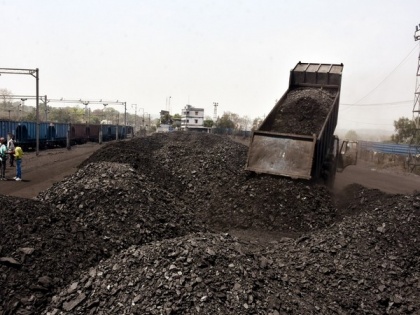Audit report indicates gross misuse, presumptive fraud of DMFT fund in Jharkhand
By ANI | Published: May 1, 2022 05:42 PM2022-05-01T17:42:02+5:302022-05-01T17:50:13+5:30
An audit of the District Mineral Foundation Trust fund, collected under the provision of the Mines Minerals (Development and Regulation) Act, indicates gross misuse of the DMFT fund.

Audit report indicates gross misuse, presumptive fraud of DMFT fund in Jharkhand
An audit of the District Mineral Foundation Trust fund, collected under the provision of the Mines Minerals (Development and Regulation) Act, indicates gross misuse of the DMFT fund.
The audit was conducted by the Jharkhand's Principal Auditor General (PAG) in six districts, Bokaro, Chatra, Dhanbad, Hazaribagh, Lohardaga and Ranchi. In these districts, a sum of about Rs 3,000 crore was collected as DMFT funds between 2015 and 2021. The audit was conducted between December 2020 and April 2022.
The audit team, in its report, which was submitted to Chief Secretary on April 22, expressed dissatisfaction, saying the mines department restricted its access to crucial and primary records for audit and it was a red flag to presumptive fraud and misappropriation.
"Audit findings are restricted to deficiencies noticed in the financial management of the trust fund, planning and selection of schemes and deficiencies in monitoring the fund, etc. As audit was not provided access to crucial records/ information in managing the Fund, the actual reason for lapses/deficiencies by individual officials could be examined and reported," states the audit report.
The PAG wrote in the report, "...restriction on access to crucial and primary records to audit despite the assurance of full cooperation by the Secretary of the Department and the Chief Secretary is a red flag to presumptive fraud and misappropriation. These potentially derail the constitutional mandate of audit and prevent it from providing insights to the state legislature for fixing accountability on erring officials."
In October 2019, the District Planning Office, Bokaro finalized the tender for the installation of 24 open gyms at a cost of 1.08 crore in different sectors of Bokaro Steel Plant residential township. Audit noticed that DC Bokaro granted post-facto approval for payment of the said work from the DMFT fund. The installation of an open gym was approved under health care but such activity was not specified in the scope of work relating to health care under PMKKKY. Thus DMFT fund was grossly misused by the DC of Bokaro in violation of the Act/Rules/PMKKKY provision, read the report.
In DMFT, Ranchi an amount of 85.56 lakh was sanctioned in May 2017 for the construction of a Dak-bungalow at Mcluskiganj. The audit noticed that this work was completed in September 2020, and expenditure was booked as 'Skill development and livelihood '. However, such construction work does not fall under the category of skill development and livelihood under the provision of PMKKKY guidelines.
In Chatra, three schemes related to repair and maintenance of the Drinking Water and Sanitation (DWS) Department and the construction of toilets in the police station were sanctioned for Rs 4.79 crores during 2017-19, out of which 4.52 crore was spent. Repair and maintenance of tubewell and water supply system was not an ongoing scheme or project funded by the state government, rather it was a routine and recurring work by the DWS department which was to be carried out from the budget of the DWS department. As such, the sanction of these schemes under DMFT was not admissible and was beyond the scope of PMKKKY, the audit found.
The central government launched Pradhan Mantri Khanij Khanij Kalyan Yojna (PMKKKY) in September 2015 and issued directives to the states to incorporate them into the DMFT fund rules. The primary mandate of the funds is to implement developmental and welfare projects in mining-affected areas, mitigate the adverse impact on the environment, uplift the health and socio-economic conditions of the people in mining districts, and ensure the long-term sustainable livelihood of those affected.
( With inputs from ANI )
Disclaimer: This post has been auto-published from an agency feed without any modifications to the text and has not been reviewed by an editor
Open in app